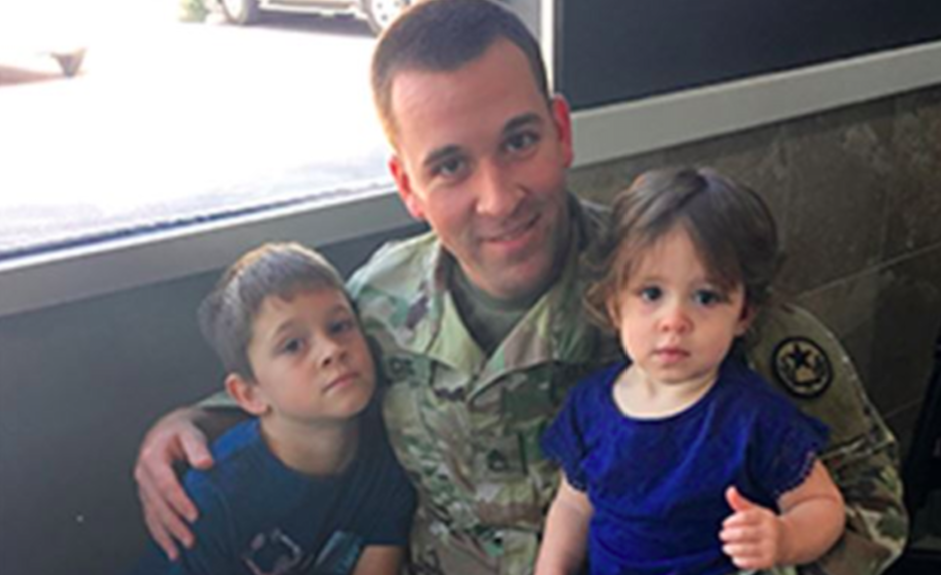“The sun was starting to set. It was to that point where you run into the sun it kind of casts a glare on you.”
***
Not long ago, Texas Army National Guard Staff Sergeant Aaron Dias was on the road with a recruit, headed back to their home armory after serving at the Military Entrance Processing Station in Shreveport, Louisiana when something unexpected happened. Cane in hand, a middle-aged man stepped in their vehicle’s path, and onto the busy thoroughfare.
Unbeknownst to Dias at the time, the pedestrian — Hiwatha Hudson, 55 — was legally-blind.
“My applicant in the passenger seat hollered at me, ‘There’s someone on the road!’ Sure enough, as soon as we cast over the hill, I saw a silhouette of a man and I swerved to miss him,” Dias told a military reporter, United States Army Sergeant Elizabeth Pena, at the Pentagon.
Not even five seconds later, through their rearview mirrors, the two service members witnessed something grotesque.
They saw Hudson get hit. By another car.
Dias quickly turned around, called 911, and took control of the emergency.
“I jumped out, got my applicant to start blocking traffic. When I came up to the man he was face down, and the blood was running down pretty heavy. So I rolled him over on his side to the recovery position to kind of balance his head so the blood would drain out and I held him there and checked his pulse until the EMT arrived.”
More from the DoD:
The recovery position, one of the many skills learned in the military, is designed to prevent suffocation through obstruction of the airway.
“I don’t think if I had that training or that repetition of training … I don’t know if I would have done anything successfully like I did,” Dias said.
Service members in the Texas Army National Guard must go through combat lifesaving courses and are taught to always be ready to help.
“Every other generation of my family has served,” Dias said. “It’s a duty. It’s an honor and opportunity to put on this uniform, every day.”
Hudson has since been transferred to the Ocean Behavior Hospital in East Texas.
“I am so glad he was there to render aid because if he hadn’t, I would not have my son today,” said Jerleane Hudson, Henry’s mother. “I’m praying that God will forever bless him.”
Although he has not made a full recovery, it is Dias’ fast response that saved his life.
The heroic soldier is a father of two children. He has a six-year-old son and an 18-month-old daughter (pictured above).
“People will drive past people in wrecks all the time. They won’t stop and ask if they’re okay. Heck it could’ve been you, or me, and I would pray that someone would stop and do what they could, whether it was helpful or not, at least they were trying. You know, just help.”




































